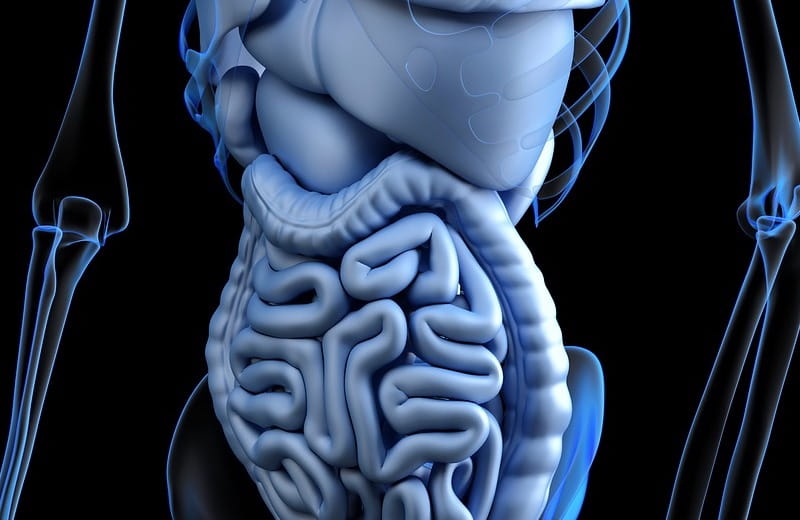Crohn’s disease is a form of inflammatory bowel disease that affects the gastrointestinal tract. It is characterized by inflammation along the digestive tract lining, and this inflammation leads to severe abdominal pain, diarrhea, mouth sores and bloody stools. The inability to properly absorb and digest food can make people with Crohn’s feel constantly tired and fatigued, and they may lose weight rapidly.
Though Crohn’s disease can be very painful and unpleasant condition, there is some hope for people who suffer with Crohn’s. As doctors begin to understand Crohn’s disease better, they are creating some very effective treatments. Some Crohn’s disease treatments just help to provide relief from symptoms, and other treatments help to prevent future flare-ups. Since each Crohn’s patient is different, certain treatment options may be more useful than others. Depending on the severity of your condition, your doctor may recommend that you try one or more of these treatment methods.

1. Immunosuppressive Drugs
Since Crohn’s disease seems to be caused by an overactive immune system, the first treatment recommended for patients with Crohn’s is typically immunosuppressive drugs. These medications work by neutralizing immune responses and lowering overall body inflammation. There are a few different categories of immunosuppressive that may be recommended for people with Crohn’s. Though immunosuppressive drugs can be very helpful, patients who are using them need to be monitored carefully because the drugs can cause a decreased resistance to dangerous infections.
The most commonly used immunosuppressants are azathioprine and mercaptopurine. Infliximab, adalimumab, and certolizumab all also help to lower immune responses by neutralizing the TNF protein. Another popular immunosuppressant, methotrexate, may provide relief among patients who do not respond well to other forms of immunosuppressive medication. Natalizumab or vedolizumab are occasionally prescribed, but they can cause some very dangerous side effects by damaging the brain.
2. Vitamins
Since the body does not absorb nutrients easily when a person has Crohn’s disease, it is very important to get enough nutrients. People with Crohn’s are particularly likely to suffer from vitamin B12, D, A, E, and K, iron, potassium, and zinc deficiencies. If you are taking steroids, you may be deficient in calcium, and immunosuppressive drugs can cause folic acid deficiencies.
Since it may be hard for Crohn’s patients to get these nutrients from food, many need to take nutritional supplements. If you are not certain about which deficiencies you have, you can talk to your doctor to find out what vitamins you should take.
3. Antibiotics
Not every Crohn’s patient will need antibiotics, but they can be very helpful in some cases. Antibiotics are particularly necessary if a person has abscesses or fistulas due to constant inflammation. Taking antibiotics will reduce drainage and increase healing speed for these Crohn’s related conditions. Some research also suggests that Crohn’s is linked to an overgrowth of harmful intestinal bacteria, so some patients can benefit from taking antibiotics to lower levels of problematic bacteria.
Though these sorts of medication will also kill off helpful intestinal bacteria, this can be worth it for people with excessive amounts of inflammation. In these circumstances, people with Crohn’s disease are typically prescribed ciprofloxacin and metronidazole.
4. Bowel Resection
Surgery Surgery is normally not recommended unless other medications and dietary changes are not helping with the symptoms. Only about half of all Crohn’s disease patients will end up needing bowel resection surgery. This type of surgery is most effective when inflammation has damaged part of the bowel so much that it is causing serious infections.
In bowel resection surgery, the doctor will remove the damaged sections of the intestines and then reconnect the healthier portions of the digestive tract. This provides immediate relief from symptoms, but the previously healthy parts of the bowel can end up getting inflamed too if the patient does not take medication to lower flare-up risks.
5. Dietary Fiber
Supplements For many patients with Crohn’s disease, high fiber foods have been linked to more severe problems. However, this is typically only true of insoluble fiber, which is found in produce and grains. Soluble fiber can actually be very helpful for promoting gastrointestinal health.
People with Crohn’s disease typically need between 25 to 38 grams of soluble fiber per day when they are not in the middle of a flare-up. In order to get helpful soluble fiber without ingesting excessive amounts of insoluble fiber, it is best to get your fiber in the form of dietary fiber supplements. Supplements with psyllium or methylcellulose can be helpful.
6. Steroids
For many Crohn’s patients, corticosteroids are one of the first treatment methods that a doctor will suggest, but they may not work for some patients. Steroids are very helpful because they reduce inflammation throughout the body. Therefore, they can be used to halt a Crohn’s disease flare up and help to decrease intense Crohn’s symptoms.
Once the patient is in remission, your doctor will typically suggest other treatment methods. Long term steroid usage is not suggested because it can end up causing other sorts of problematic side effects throughout the body. Most Crohn’s treatments just require taking steroids for three to four months.
7. Enema Medical Procedure
An enema medical procedure is a procedure that involves filling the colon and intestines with a material. This is often necessary in Crohn’s because it can help a doctor to get an idea of which portion of the intestines are affected. During the procedure, the colon is filled with barium. This is a contrast material that will make it easier to view the intestines on an X-ray. The most common type of barium enema for a Crohn’s patient is one where the barium is drained out of the colon and then the colon is filled with air. This makes it easy for the doctor to view areas with swelling or infected pouches.